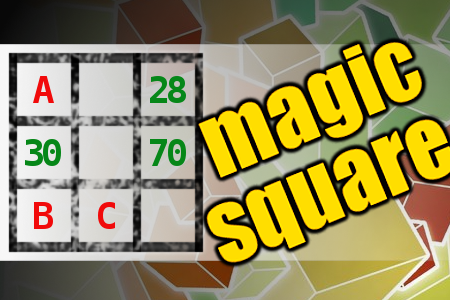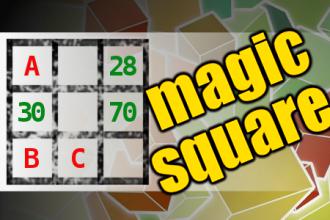MAGIC SQUARE: Calculate A*B+C
The aim is to place the some numbers from the list (9, 20, 22, 24, 26, 28, 30, 70, 74, 78) into the empty squares and squares marked with A, B an C. Sum of each row and column should be equal. All the numbers of the magic square must be different. Find values for A, B, and C. Solution is A*B+C.Correct answers: 43
The first user who solved this task is Eugenio G. F. de Kereki.
#brainteasers #math #magicsquare


